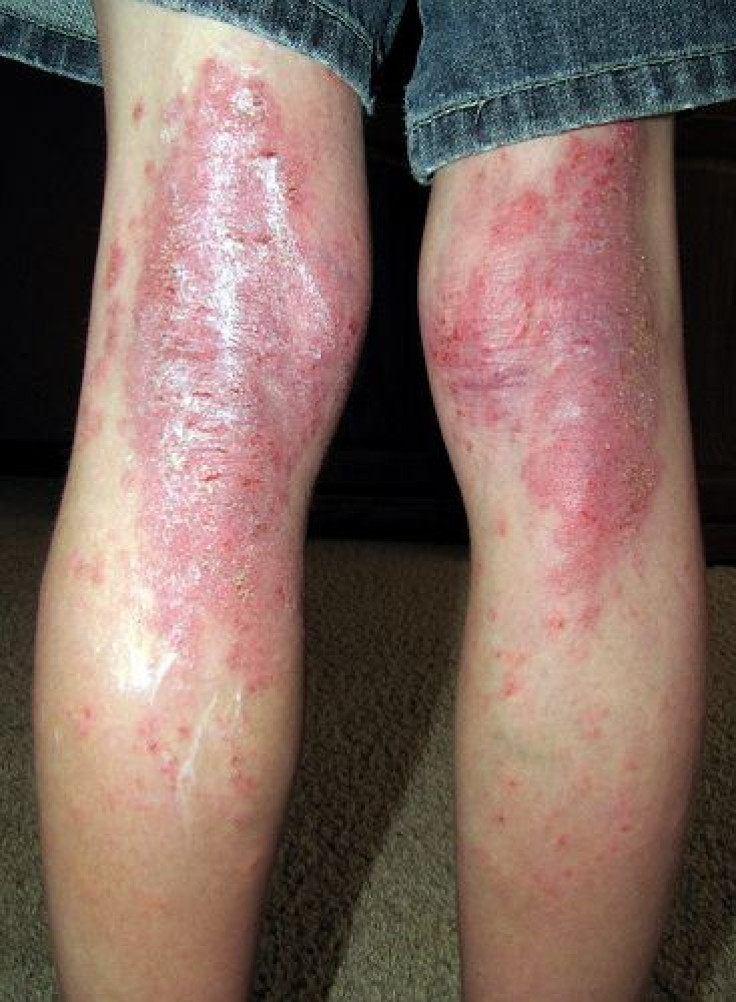Peptides Combat Atopic Eczema in New Study

A strain of yeast that causes inflammatory skin conditions, including eczema can now be killed by certain components of proteins known as peptides, researchers say.
Eczema causes red, swollen and itchy skin. The most common type is atopic eczema, an allergic condition that makes skin dry and itchy, commonly found in babies and children but also adults.
Researchers at Karolinska Institute in Sweden looked for a way to kill a strain of yeast without harming healthy skin cells. The yeast - Malassezia sympodialis – is most commonly known to trigger exacerbation of those suffering from atopic eczema.
The study was published in the Society for Applied Microbiology's journal, Letters in Applied Microbiology.
Researchers have known that cell-penetrating peptides are often used as drug delivery vectors and are able to cross the cell membrane. Antimicrobial peptides are natural antibiotics and kill many different types of microbes including some bacteria, fungi and viruses. Researchers looked at 21 peptides to see how they work against yeast.
Tina Holm and colleagues at Stockholm University and Karolinska Institute separated yeast colonies and assessed the toxicity of each peptide types to yeast. They found six successfully killed the yeast without damaging the membrane of human skin cells.
"Many questions remain to be solved before these peptides can be used in humans. However, the appealing combination of being toxic to the yeast at low concentrations whilst sparing human cells makes them very promising as antifungal agents,” said Holms.
Researchers hope that these peptides in the future can be used to ease the symptoms of patients suffering from atopic eczema and significantly increase their quality of life.
Eczema Statistics
An estimated 10 to 20 percent of infants and young children experience symptoms of the disease. Roughly 60 percent of these infants continue to have one or more symptoms of atopic dermatitis in adulthood. In adults, the prevalence is thought to be 1 to 3 percent, with an overall lifetime prevalence of about 7 percent, according to National Institutes of Health.



























